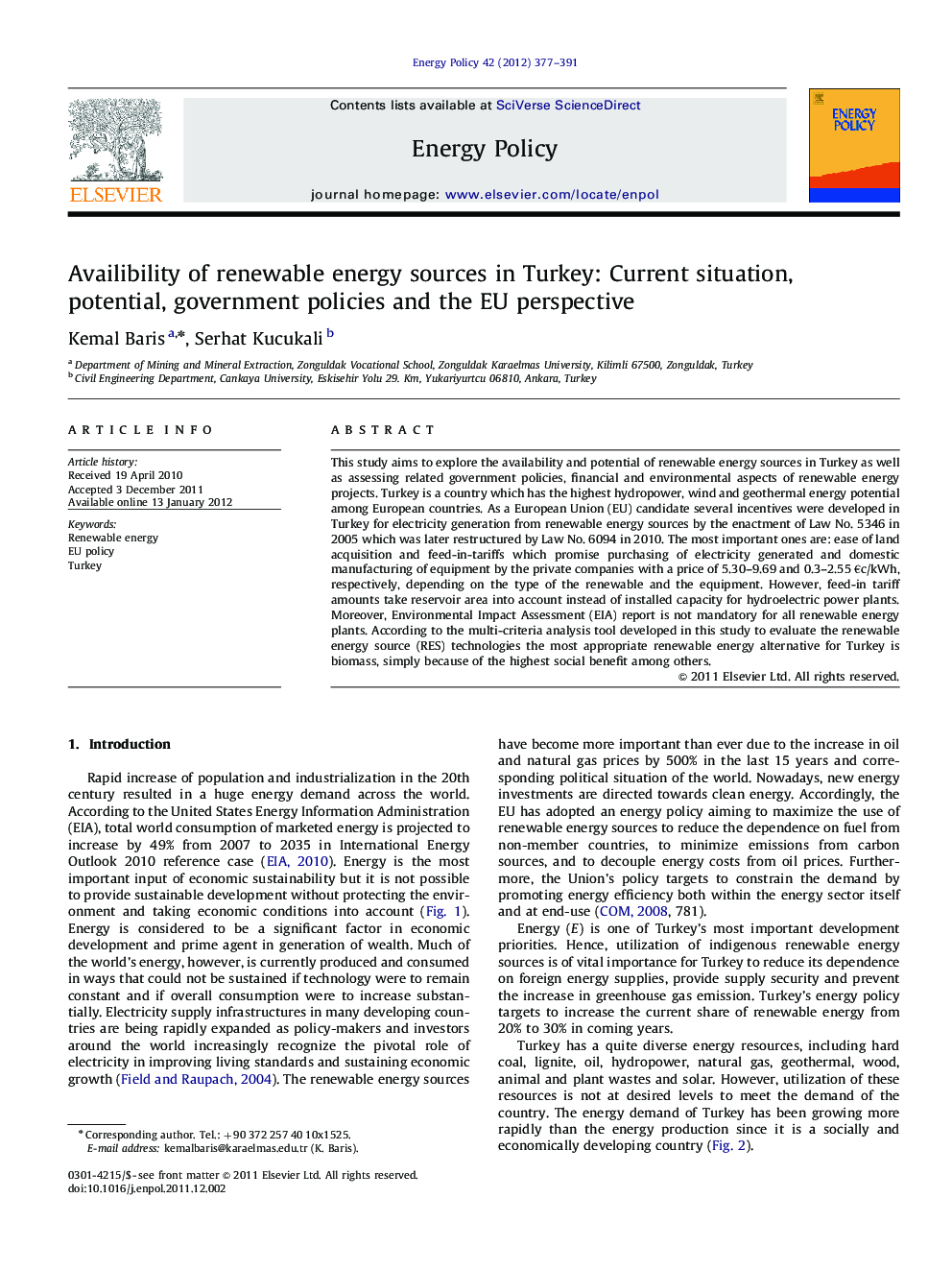| Article ID | Journal | Published Year | Pages | File Type |
|---|---|---|---|---|
| 995776 | Energy Policy | 2012 | 15 Pages |
This study aims to explore the availability and potential of renewable energy sources in Turkey as well as assessing related government policies, financial and environmental aspects of renewable energy projects. Turkey is a country which has the highest hydropower, wind and geothermal energy potential among European countries. As a European Union (EU) candidate several incentives were developed in Turkey for electricity generation from renewable energy sources by the enactment of Law No. 5346 in 2005 which was later restructured by Law No. 6094 in 2010. The most important ones are: ease of land acquisition and feed-in-tariffs which promise purchasing of electricity generated and domestic manufacturing of equipment by the private companies with a price of 5.30–9.69 and 0.3–2.55 €c/kWh, respectively, depending on the type of the renewable and the equipment. However, feed-in tariff amounts take reservoir area into account instead of installed capacity for hydroelectric power plants. Moreover, Environmental Impact Assessment (EIA) report is not mandatory for all renewable energy plants. According to the multi-criteria analysis tool developed in this study to evaluate the renewable energy source (RES) technologies the most appropriate renewable energy alternative for Turkey is biomass, simply because of the highest social benefit among others.
► Availability of renewable energy sources in Turkey is assessed. ► Policies towards renewable energy sources are compared to the EU’s policies. ► A multi-criteria analysis tool was developed and biomass is found to be the most appropriate alternative for Turkey. ► Turkey should revise its existing policies towards renewables. ► EIA requirements for power plants should be revised.
